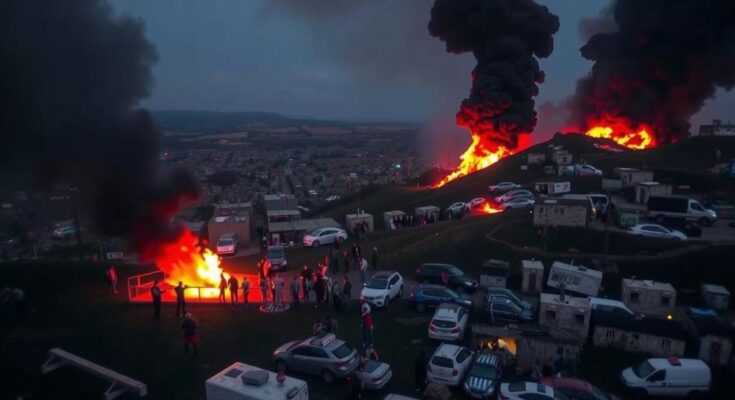Iranian Parliament Speaker Mohammad Baqer Qalibaf has cautioned against normalizing Israel’s violations of the Lebanon ceasefire. Despite the ceasefire brokered by the U.S. and France, Israeli assaults continue, injuring civilians. Qalibaf reaffirmed Iran’s support for Lebanon while addressing regional security dynamics.
Mohammad Baqer Qalibaf, the Speaker of the Iranian Parliament, has issued a warning regarding Israel’s ongoing violations of the ceasefire agreement with Lebanon. In a recent phone conversation with Lebanese Parliament Speaker Nabih Berri, Mr. Qalibaf emphasized the necessity of preventing these violations from becoming commonplace. He noted that Israel reluctantly accepted a ceasefire after suffering considerable losses in its confrontations with Hezbollah, which lasted over 14 months.
The ceasefire, negotiated with the assistance of the United States and France, commenced early Wednesday morning and is intended to remain in effect for 60 days as negotiations continue for a permanent cessation of hostilities. Despite this, Lebanon’s Health Ministry reported that recent Israeli strikes in areas such as Majdal Zoun left several individuals, including a child, injured. Mr. Qalibaf expressed approval of the ceasefire’s implementation and commended Speaker Berri for his pivotal role in reaching this agreement during challenging circumstances.
Moreover, Mr. Qalibaf reiterated Iran’s unwavering commitment to supporting Lebanon’s government, parliament, its people, and the resistance movements. He commented on the recent upsurge in attacks by Takfiri groups in Syria, attributing these to align with Israeli objectives. He asserted that the situation in the West Asia region requires serious management and cooperation among parties involved.
In a related note, local sources indicated that Hayat Tahrir al-Sham, along with allied factions, made significant territorial gains in Aleppo, prompting counterattacks from Syrian forces. Russian air forces have reportedly resumed operations in Aleppo city, marking their first raids since 2016 to counter this escalation. In response to Iran’s support, Speaker Berri acknowledged its substantial role in Lebanon’s defense against Israel, referring to it as a “brutal predator” that aims to dominate the region.
The ongoing tensions between Israel and Hezbollah in Lebanon have a long-standing history characterized by conflicts and ceasefire agreements. The recent ceasefire, brokered through international mediation, aims to end hostilities that have inflicted significant civilian casualties and infrastructural damage. With over 16,000 individuals injured and nearly 4,000 fatalities attributed to Israeli military actions, the humanitarian situation in Lebanon remains precarious. This conflict occurs in a broader context of regional instability influenced by multiple factors including the actions of extremist groups that threaten both local and international security.
In conclusion, the dialogue between Iranian and Lebanese leaders underscores the significant challenges posed by Israeli actions in Lebanon and the need for collaborative efforts to maintain peace. Speaker Qalibaf’s assurances of continued Iranian support for Lebanon reflect a commitment to regional solidarity amid ongoing conflicts. The recent ceasefire, while a temporary reprieve, highlights the complexities of establishing lasting peace in the region, particularly against the backdrop of potential escalations from extremist factions in neighboring Syria.
Original Source: presstv.ir



